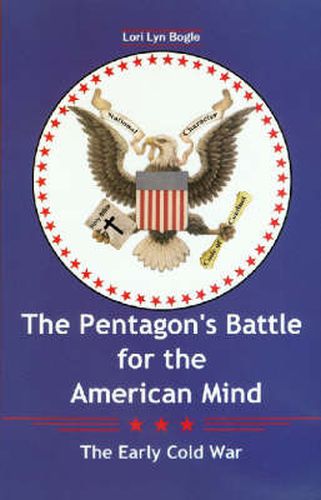Readings Newsletter
Become a Readings Member to make your shopping experience even easier.
Sign in or sign up for free!
You’re not far away from qualifying for FREE standard shipping within Australia
You’ve qualified for FREE standard shipping within Australia
The cart is loading…






The U.S. military has historically believed itself to be the institution best suited to develop the character, spiritual values, and patriotism of American youth. Here, author Lori Bogle investigates how the armed forces assigned themselves this role and why they sought to create
ideologically sound Americans capable of defeating communism and assuring the victory of democracy at home and abroad.
Bogle shows that this view of America’s civil religion predated tension with the Soviet Union. She traces this trend from the Progressive Era though the early Cold War, when the Truman and Eisenhower administrations formulated plans that promised to prepare the American public morally and spiritually for confrontation with the evils of communism. Bogle’s analysis suggests that cooperation among the military, evangelical right wing groups, and government was considered both necessary and normal. The Boy Scouts pushed a narrow vision of American democracy, and Joe McCarthy’s chauvinism was less an aberration than a noxious manifestation of a widespread attitude. To combat communism, America and its armed forces embraced a narrow moral education that attacked everyone and everything not consonant with their view of the world order. Exposure of this alliance ultimately dissolved it.
$9.00 standard shipping within Australia
FREE standard shipping within Australia for orders over $100.00
Express & International shipping calculated at checkout
The U.S. military has historically believed itself to be the institution best suited to develop the character, spiritual values, and patriotism of American youth. Here, author Lori Bogle investigates how the armed forces assigned themselves this role and why they sought to create
ideologically sound Americans capable of defeating communism and assuring the victory of democracy at home and abroad.
Bogle shows that this view of America’s civil religion predated tension with the Soviet Union. She traces this trend from the Progressive Era though the early Cold War, when the Truman and Eisenhower administrations formulated plans that promised to prepare the American public morally and spiritually for confrontation with the evils of communism. Bogle’s analysis suggests that cooperation among the military, evangelical right wing groups, and government was considered both necessary and normal. The Boy Scouts pushed a narrow vision of American democracy, and Joe McCarthy’s chauvinism was less an aberration than a noxious manifestation of a widespread attitude. To combat communism, America and its armed forces embraced a narrow moral education that attacked everyone and everything not consonant with their view of the world order. Exposure of this alliance ultimately dissolved it.